Books
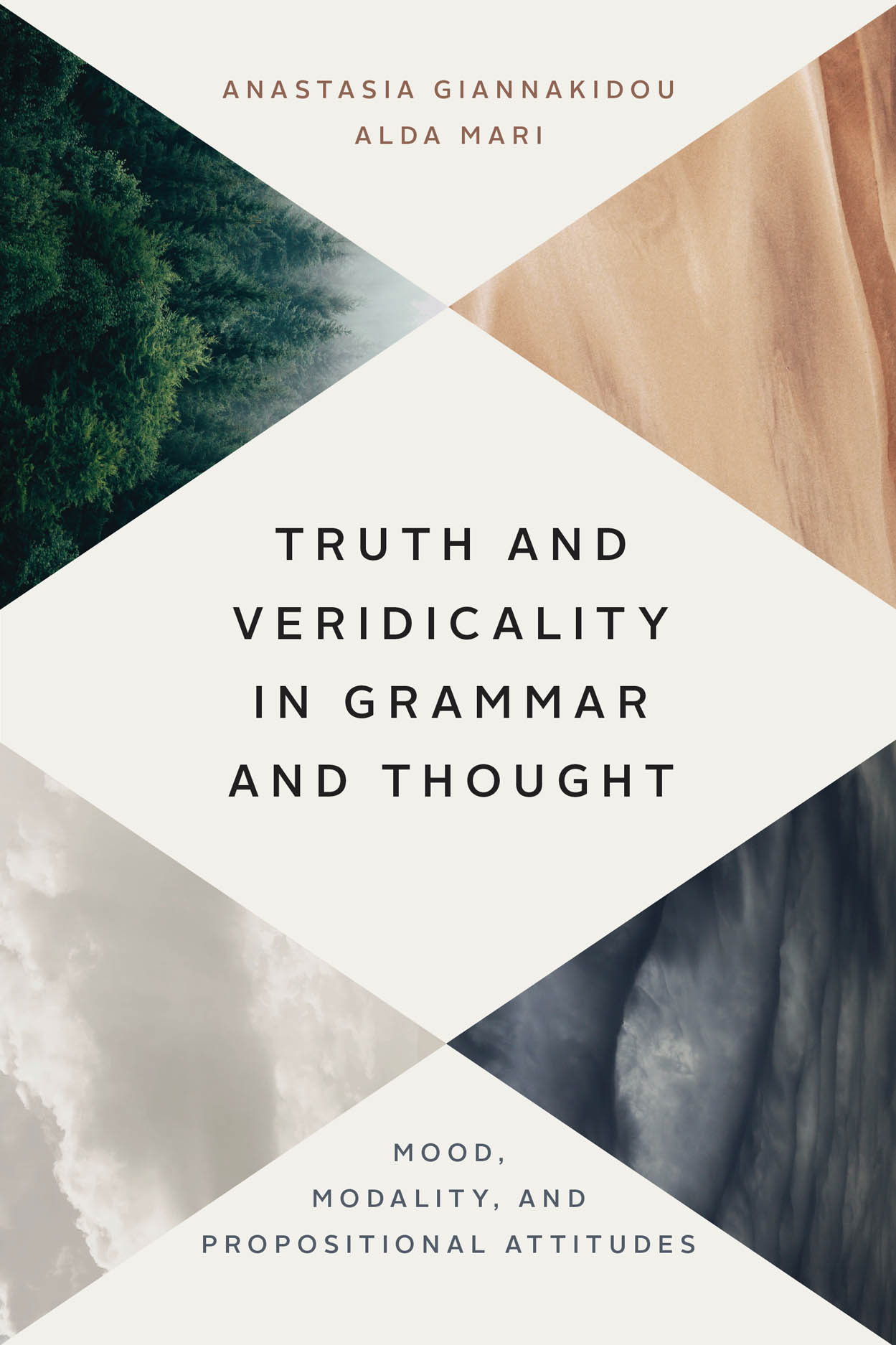
Giannakidou, Anastasia and Alda Mari, 2021. Truth and Veridicality in Grammar and Thought: Mood, Modality, and Propositional Attitudes. With Alda Mari. The University of Chicago Press: Chicago.
Can language directly access what is true, or is the truth judgment affected by subjective, perhaps even solipsistic, perceptions of reality? This book studies the factors that play a key role in the formation of the veridicality judgement, and concludes that grammar encodes both judgment about truth (with factive verbs and verbs of knowledge) as well as subjective preferences which create what the authors call subjective veridicality. The difference between knowledge and belief (opinion) remains solidly encoded in the grammar as we can see with mood choice: while knowledge comes with the indicative, belief and option can also select the subjunctive.
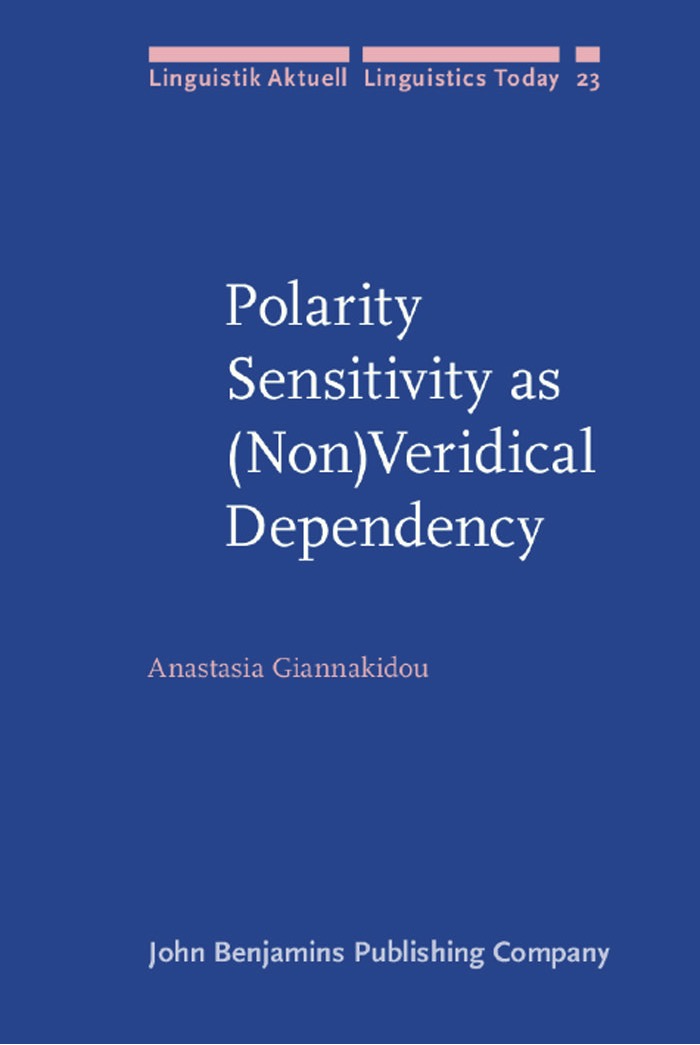
Giannakidou, Anastasia 1998. Polarity Sensitivity as (Non)veridical Dependency. Anastasia Giannakidou. John Benjamins: Amsterdam-Philadelphia.
This book presents a comprehensive theory of polarity phenomena in language which avoids the empirical and conceptual problems of previous approaches by introducing the notion of (non)veridicality. The leading idea is that the various polarity phenomena observed in language are manifestations of the dependency of certain expessions, i.e. polarity items (words such as any, whoever, ever, and their counterparts in the many languages discussed in the book, including Greek), to the (non)veridicality of the context of appearence. Dependencies to negation or downward entailment emerge as subcases of nonveridicality.The (non)veridical dependency may be positive (licensing), or negative (anti-licensing), and arises from the sensitivity features of polarity items.
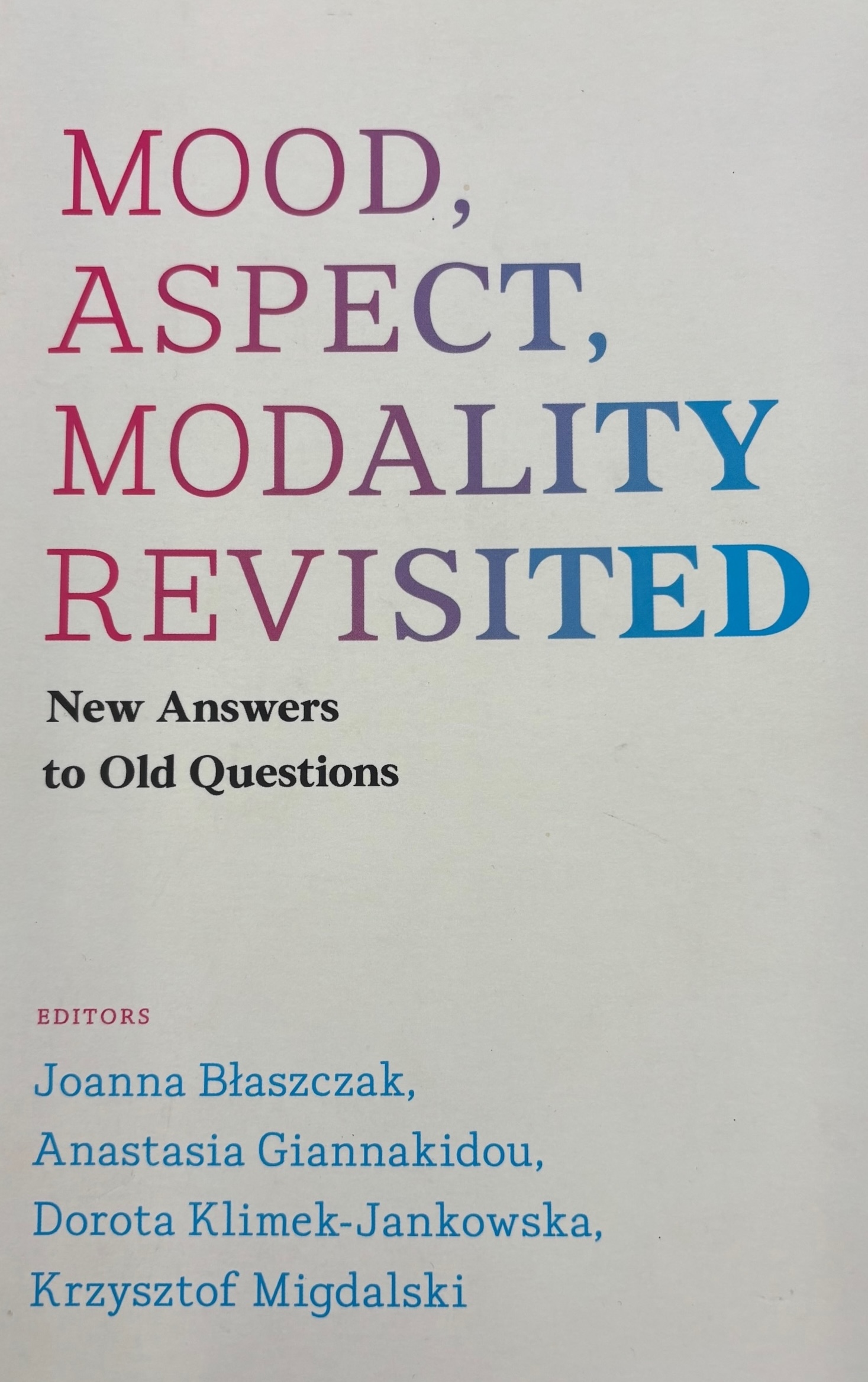
Blaszack, J., A. Giannakidou, D. Klimek-Jankowska, K. Mygdalski (eds). Mood, Aspect, Modality Revisited, New Answers to Old Questions, University of Chicago Press. 2016.
Over the past several decades, linguistic theorizing of tense, aspect, and mood (TAM), along with a strongly growing body of crosslinguistic studies, has revealed complexity in the data that challenges traditional distinctions and treatments of these categories. Mood, Aspect, Modality Revisited argues that it’s time to revisit our conventional assumptions and reconsider our foundational questions: What exactly is a linguistic category? What kinds of categories do labels such as “subjunctive,” “imperative,” “future,” and “modality” truly refer to? In short, how categorical are categories? Current literature assumes a straightforward link between grammatical category and semantic function, and descriptions of well-studied languages have cultivated a sense of predictability in patterns over time. As the editors and contributors of Mood, Aspect, Modality Revisited prove, however, this predictability vanishes in the study of lesser-known patterns and languages. The ten provocative essays gathered here present fascinating cutting-edge research demonstrating that the traditional grammatical distinctions are ultimately fluid—and perhaps even illusory.
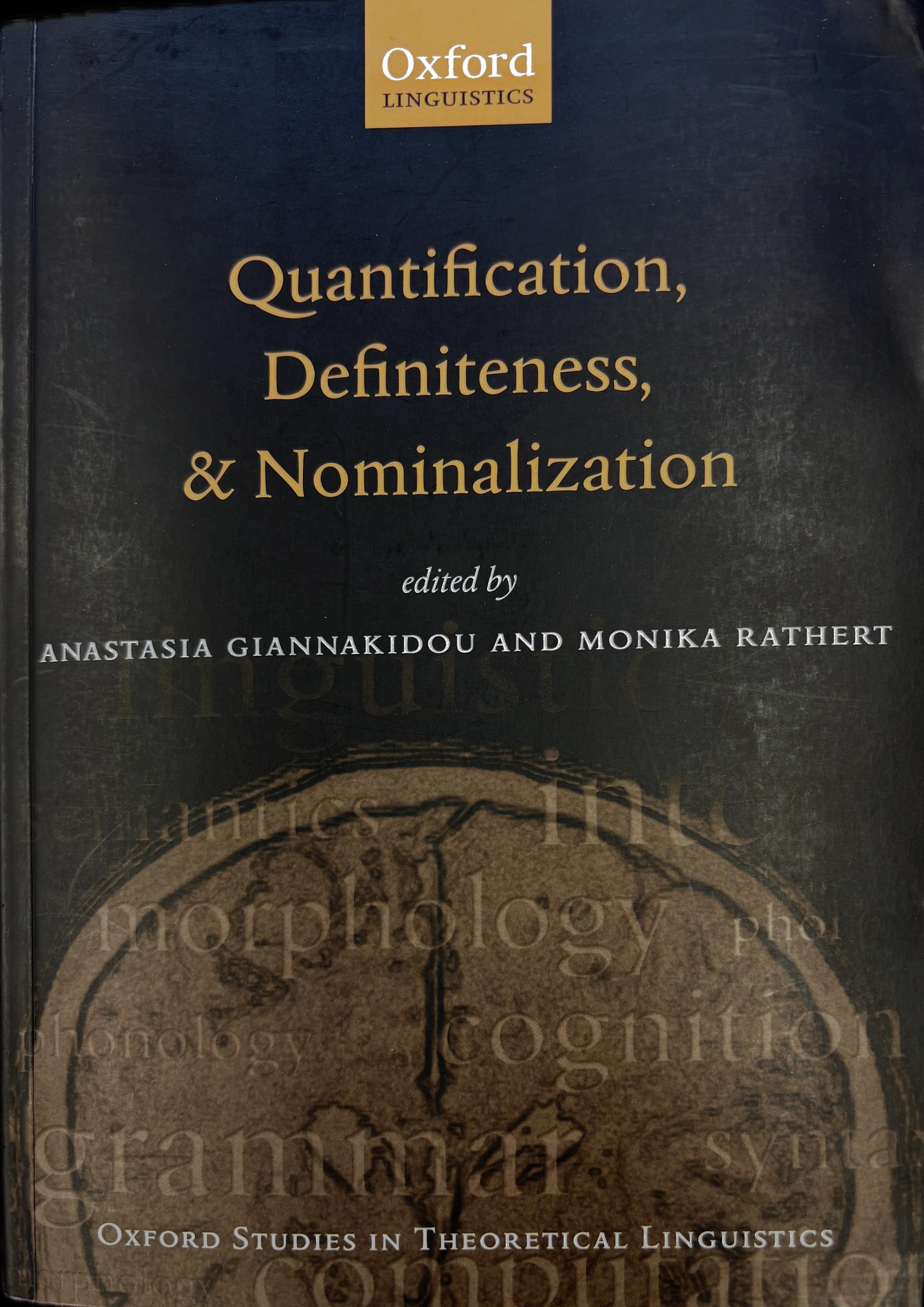
Giannakidou Anastasia and Monika Rathert, 2009. (eds), Quantification, Definiteness, and Nominalization. Oxford University Press, Series Oxford Studies in Theoretical Linguistics
This book is a collection of articles presented in a workshop on QP Structure, Nominalizations, and the role of DP at Saarland University in December 2005. The collection is introduced by the editors’ thorough overview of quantifiers and definiteness in recent syntactic theory. The book is divided into three parts exploring connections between quantification, definiteness, and nominalization.The volume has become an essential reference on the syntax and semantics of quantification, nominalization, and definiteness. The breadth of empirical coverage and explorations of the interfaces between syntax, semantics, and the lexicon make this volume important reading for linguists interested in the nominal domain.
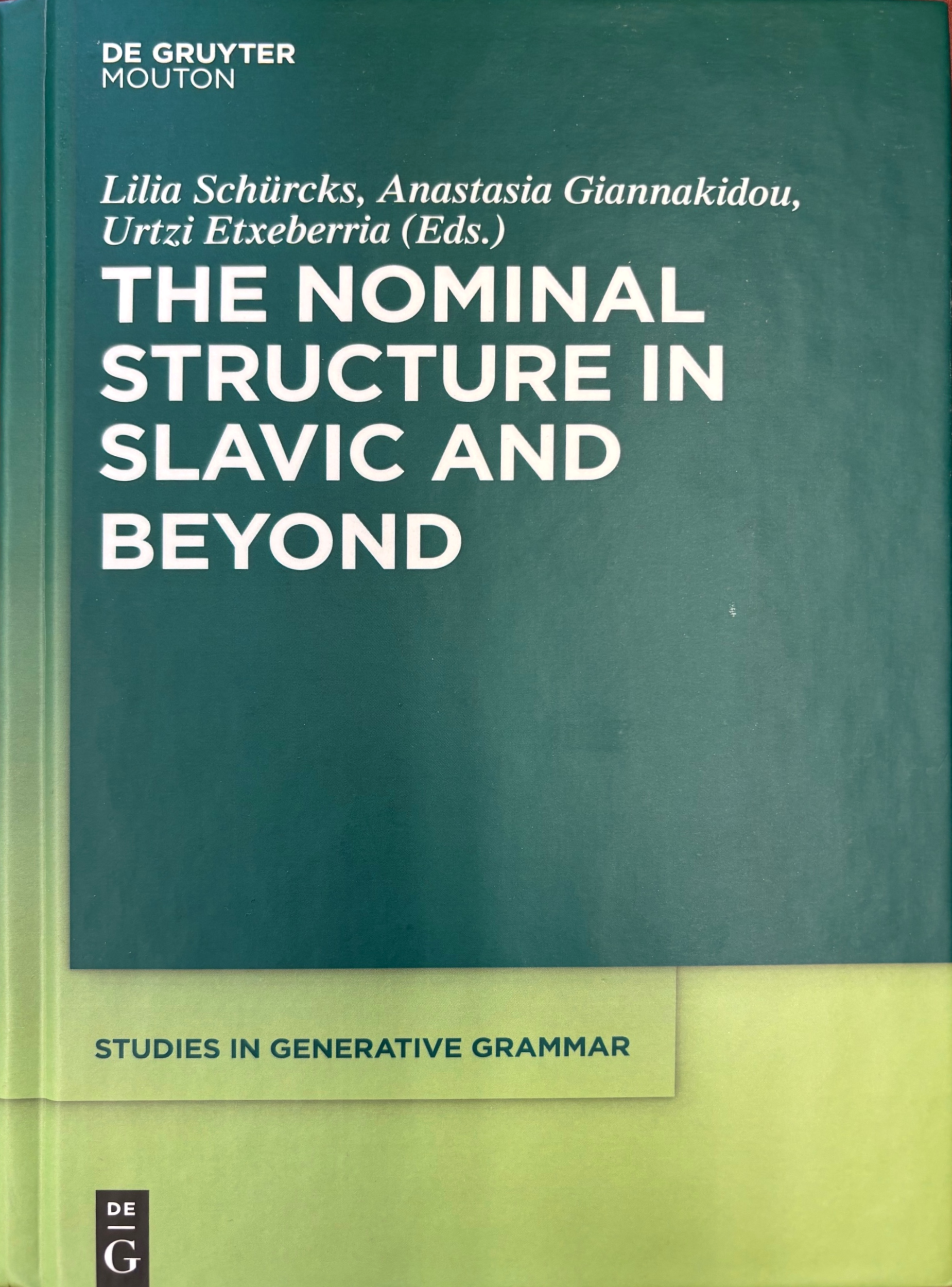
Lilia Schurcks, Anastasia Giannakidou, Urtzi Etxeberria (eds). 2014. Nominal structure in Slavic and beyond. Series: Studies in Generative Grammar, Mouton de Gruyter.
The contributions in this volume shed new light on the discussion of whether the DP hypothesis applies universally or not. The issue is prominent not only for Slavic languages. Drawing on evidence from many other languages, Greek, East Asian, Basque, and Native American languages among them, the articles in this book propose analyses that have important implications for answering fundamental questions about the nature of definiteness and quantification.